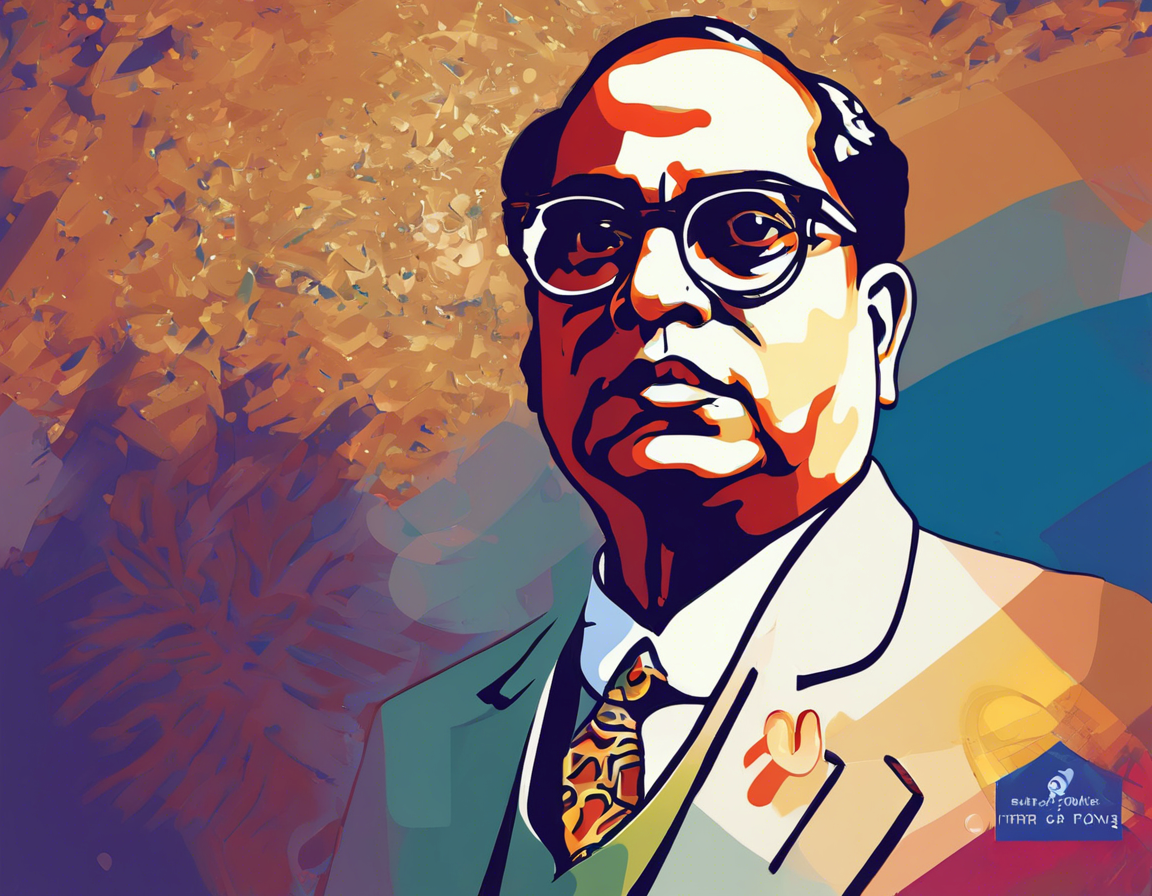Bhim Rao Ambedkar, also known as Babasaheb Ambedkar, was an Indian jurist, economist, politician, and social reformer who campaigned against social discrimination towards the untouchables (Dalits), women, and laborers. He was the chief architect of the Indian Constitution and played a pivotal role in shaping the future of independent India. Born into a Dalit family in 1891, Ambedkar overcame numerous obstacles to become one of the most influential figures in Indian history.
Early Life and Education
Born in Mhow, Madhya Pradesh, Ambedkar faced discrimination from a young age due to his caste. Despite facing numerous challenges, he focused on his education and eventually earned multiple degrees, including a law degree from Columbia University. His educational achievements empowered him to fight for the rights of marginalized communities in India.
Social Reforms
Ambedkar was a relentless crusader for social justice. He advocated for the rights of Dalits, women, and other oppressed groups in Indian society. He played a key role in the Dalit Buddhist movement, which aimed to uplift the status of Dalits through education and empowerment. Additionally, he fought against the oppressive caste system and worked towards creating a more equal and just society.
Political Career
Ambedkar’s political career was marked by his commitment to advocating for the rights of marginalized communities. He was appointed as the Chairman of the Drafting Committee of the Indian Constitution and played a crucial role in ensuring that the constitution enshrined principles of equality, liberty, and justice for all citizens. He also served as the country’s first Law Minister and played a significant role in shaping India’s legal system.
Legacy
Babasaheb Ambedkar’s legacy continues to resonate in modern India. His teachings on equality, social justice, and human rights have inspired generations of activists and social reformers. The Dalit Buddhist movement that he spearheaded continues to thrive, providing hope and empowerment to marginalized communities. His role in drafting the Indian Constitution ensures that his vision of a just and inclusive society is upheld in the country’s governance.
Contributions to Economic Thought
Apart from his social and political contributions, Ambedkar also made significant contributions to economic thought. He wrote extensively on issues of poverty, social justice, and economic development in India. His ideas on land reforms, industrialization, and the role of the state in economic planning have influenced policymakers and economists in India.
Relevance Today
In contemporary India, the teachings and legacy of Bhim Rao Ambedkar remain more relevant than ever. The fight against social discrimination, caste-based violence, and gender inequality continue to be pressing issues in Indian society. The principles of equality and justice that Ambedkar espoused are essential in addressing these challenges and building a more inclusive society.
Frequently Asked Questions (FAQs)
-
What was the significance of Ambedkar’s role in drafting the Indian Constitution?
Babasaheb Ambedkar played a crucial role in shaping the Indian Constitution by advocating for principles of equality, liberty, and justice for all citizens. His contributions ensured that the constitution addressed the rights of marginalized communities and established a framework for a democratic and inclusive society. -
How did Ambedkar contribute to the upliftment of Dalits in India?
Ambedkar devoted his life to fighting for the rights of Dalits in India. He advocated for social reforms, education, and empowerment initiatives to uplift the status of Dalits in Indian society. His efforts paved the way for the Dalit empowerment movement in India. -
What is the significance of the Dalit Buddhist movement in India?
The Dalit Buddhist movement, initiated by Ambedkar, aimed to provide a sense of dignity and empowerment to Dalits in India. By embracing Buddhism, Ambedkar sought to free Dalits from the shackles of the caste system and create a more egalitarian society based on principles of equality and social justice. -
How did Ambedkar’s economic ideas influence policymaking in India?
Ambedkar’s economic ideas focused on issues of poverty, land reforms, and industrialization in India. His vision of a planned economy and the role of the state in economic development have influenced policymakers and economists in India, shaping the country’s economic policies. -
What is the legacy of Babasaheb Ambedkar in modern India?
Babasaheb Ambedkar’s legacy remains significant in modern India, inspiring movements for social justice, equality, and human rights. His teachings continue to guide activists and policymakers in their efforts to create a more just and inclusive society in the country.
In conclusion, Bhim Rao Ambedkar’s life and legacy stand as a testament to his unwavering commitment to social justice, equality, and empowerment. His contributions to the fields of law, politics, economics, and social reform continue to shape India’s journey towards a more inclusive and just society. As we reflect on his teachings and ideals, we are reminded of the ongoing struggle for equality and justice for all in Indian society.
